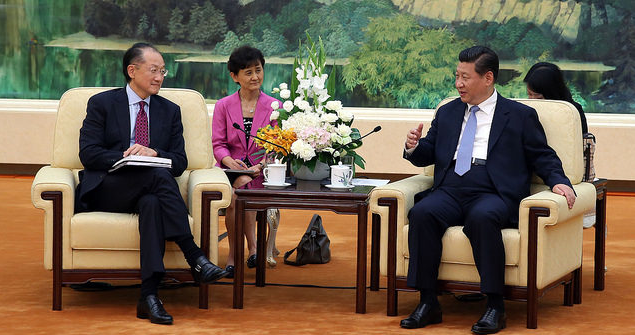Australia and the Asian Infrastructure Investment Bank

With Australia’s decision to join the AIIB expected to be announced shortly, it is clear that China’s lobbying and use of ‘soft power’ has trumped traditional US/western alliances. Australia has less than a week before the March deadline to follow the surprising announcements by other US allies – Britain, Germany, France, Italy and recently South Korea – to join the AIIB.
Australia would likely become the 39th country to join the China-backed Asian Infrastructure Investment Bank (AIIB) if it signs the Memorandum of Understanding (MoU) soon. Signing the MoU secures Australia’s place as a founding member of the AIIB, meaning it can influence the decisions of governance and projects within the new bank. Ultimately, this is the major incentive for all countries that have joined the bank as it means they will have the opportunity to be at the forefront of new economic initiatives in a growing region.
After the March deadline the bank will begin negotiations of the Article of Agreement (AoA), which regards the governing structure and policy design and will need to be approved by the founding members. This allows for the governance to be decided by all members, not just China, and states are allowed to withdraw if they do not approve of the final structure.
US pressure fails
Australia’s decision to join the AIIB was heavily debated. The government was divided into two groups: those who backed US opposition, with concerns of governance; and those who argued for a stronger, more connected role within the Asia-Pacific region. Although Washington insists it has not actively discouraged countries from joining the AIIB, it has been heavily reported in international media that it has. US Treasury Secretary Jacob Lew has been frequently quoted saying that Washington’s main concern was whether the bank would “adhere to the kind of high standards that the international institutions have developed”. However, many foreign relations and economic experts have expressed surprise that the US has chosen not to join the bank. Instead, it has pressured its allies to follow suit, rather than join to ensure that these concerns are dealt with, as its European allies have done. Britain and Germany both joined on the premise that, by being inside the AIIB, they will better be able to ensure its governance standards are high.
It is also confusing that the US has been advocating for China to become more active in world affairs, but has discouraged its allies not to sign up to the China-led bank. Arguably, US President Obama has opted for China’s rise to be encouraged through traditional banks and organisations, such as increasing China’s shareholding at the International Monetary Fund (IMF). Unfortunately, these reforms have been blocked in US Congress and have contributed to growing frustrations regarding the IMF. Many argue that the delay in reforms of traditional, Western-led banks has led to the creation of the AIIB, while the Chinese have chosen to highlight the gaps in Asian infrastructure aid by existing banks (the World Bank and Asian Development Bank).
In the end, US pressure has been trumped as European allies continue to join despite notable US pressure. South Korea, another ally heavily dependent upon the US for security, announced yesterday its intent to join. It is likely that Japan will remain on the sidelines, unless the US makes a surprising decision reversal and joins the AIIB.
Ashley Rogge is an intern at the AIIA National Office. She has a Master’s Degree in International Affairs from the Australian National University and a Bachelor’s Degree in Anthropology from Cornell University. This article can be republished with attribution under a Creative Commons Licence.


